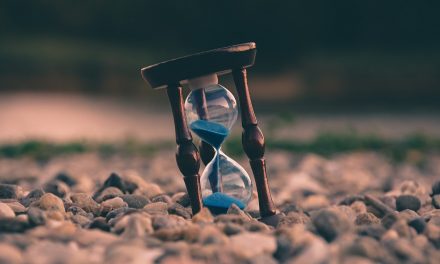Imagine for a moment that you’re in Florida, jogging on a beautiful day in February on a boardwalk next to the ocean as the waves crash on the shore. The smell of saltwater fills your lungs with each breath; the sun’s rays warming the pavement around you. Suddenly, a pebble from the bottom of one of your shoes gets lifted by the crevices in the sole and carries into your other shoe. With every step, you feel it slip deeper and deeper into your shoe until finally…it manages to make it’s way to the most uncomfortable spot under your foot. What started as a full on jog has been halted by a tiny pebble, bringing the momentum of your body to a complete stop to remove it.
Little things matter.
While most people notice fairly quickly a pebble in their shoe, other little things are not nearly as noticeable but can stop a person in their tracks while they are in pursuit of a goal. When it comes to finances, little decisions make a huge long-term impact. Take, for example, the concept of compound interest. Einstein described it as the “eighth wonder of the world” due to it’s ability to acquire and multiply wealth over long periods of time. He went on to say, “He who understands it, earns it … he who doesn’t … pays it.” Examples can be found showing the immense long-term consequences of investing early and consistently versus delaying until later years. Even a period of waiting 5-6 years to invest in a retirement account can yield massive variances over the next 30-40 years.
Other decisions that are seemingly small in the present can be shown through shopping habits. I, like most people that enjoy coffee, will go to the nearest Starbucks or local coffee shop and get myself a hot, freshly brewed cup of coffee. Beyond that, I also love the convenience of dining out. The amazing thing that both of these have in common is that though they are small purchases, the annual implication of buying a coffee at a local spot, or dining out regularly, is that it adds up to hundreds or thousands of dollars each year which could have been used to invest into a ROTH IRA, put towards an emergency fund, or pay off debt. Let’s not even focus on the “responsible” things for a second, but think about where you could travel with an extra $1,000.
There’s another funny thing that happens when we spend money, especially on non-essential things. We live in a consumer-driven economy, and while it keeps the wheels of our economy moving, it also causes us as consumers to pay a premium on our goods and services in the form of sales tax.
Try comparing how much money you spend on sales tax when you go to the grocery store to purchase your weekly food versus going out to eat for a week’s worth of meals. That $0.52 (estimated) per receipt doesn’t seem like a lot but multiply that by 10 meals in a week, and all of a sudden, you’ve spent an extra $5.20 on food with nothing to show for it. Now let’s annualized that and multiply $5.20 by 52 weeks. Want to have an extra car payment each year? Maybe make an extra payment towards your credit card bill? By avoiding eating out, you avoided the high sales tax, and by doing that consistently throughout the year, saved yourself an extra $270.40… And that’s just on groceries. What else are you paying a premium for?


